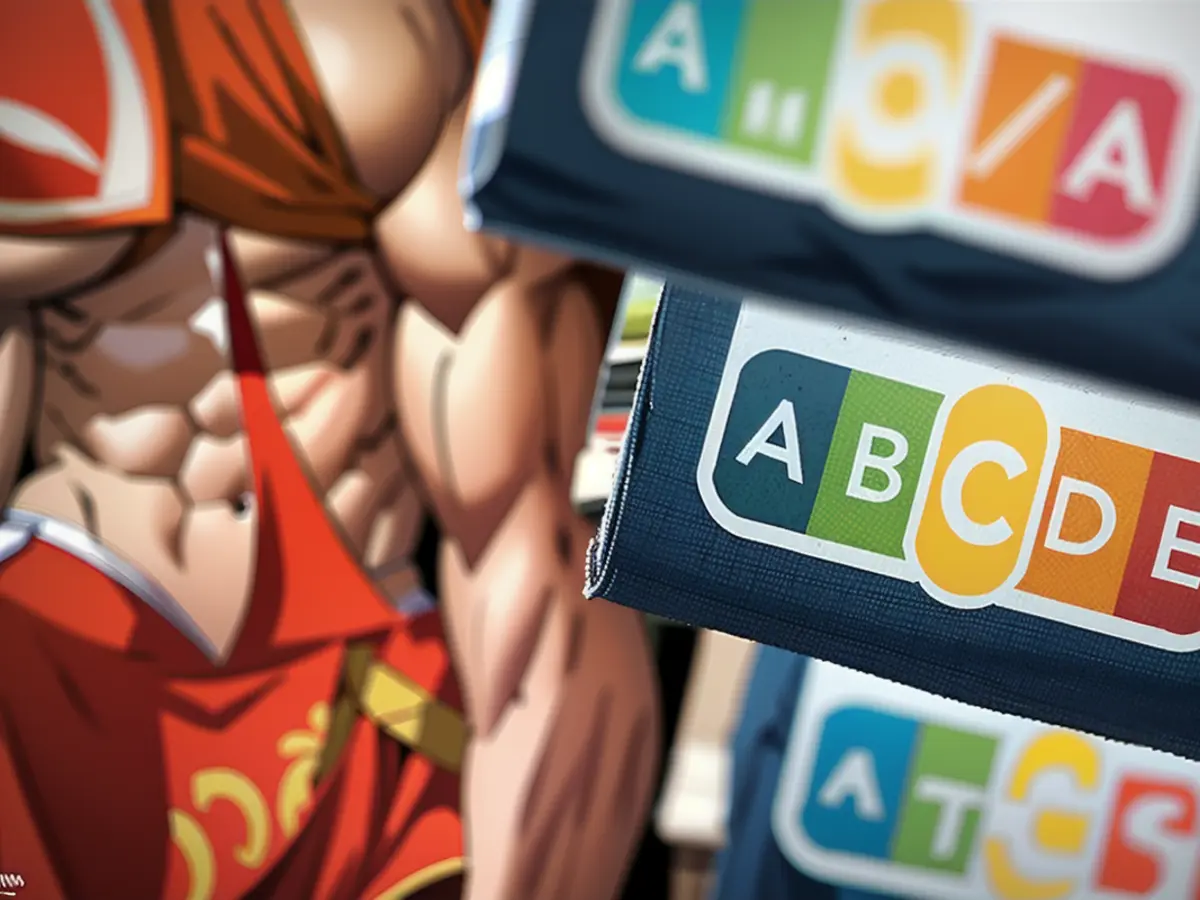Italians Furious over Nutri-Score System
The European Union wants its citizens to eat healthily, and a label with nutrient information is being considered to help with this. However, Italy is against the proposed labeling system as it would classify cherished Italian food items like cheese and ham as unhealthy.
The Mediterranean diet has been recognized as intangible cultural heritage by UNESCO since 2010, and pizza was added in 2017. Last December, Agriculture Minister Francesco Lollobrigida declared his intention to work towards including Italian cuisine on this list, stating "Italian cuisine is our calling card in the world." He emphasized the importance of defending it from any attacks.
But an attack from the European Union seems to be emerging, as evidenced by the current state of Italian media. Both Lollobrigida, a founding member of the right-wing party Forza Italia, and his predecessor from the Five Star Movement share these concerns.
This drama was sparked by the creation of new EU food labeling directives, which aim to promote healthier eating across Europe. It was announced in 2020, and the new regulations were supposed to come into effect in all 27 member states in 2022, or at least move to implementation phase. However, the timeline has proven to be overly optimistic. Not only are there now two competing labeling models - one called Nutri-Score and the other NutriInform Battery - but there are also two camps.
Healthy fries or healthy olive oil?
The French were the first to present the Nutri-Score model, which consists of five letters (A to E) and five colors (dark green to dark red). These letters and colors indicate ingredients that are beneficial or harmful to health: A and dark green stand for very healthy, E and dark red for very harmful. The sugar, fat, fiber, and salt content per 100 grams of each product are evaluated.
Italy immediately objected to this model. If such calculations were followed, some of its most popular and well-known products worldwide, such as Parmesan cheese, raw ham, and extra virgin olive oil, would nearly be classified as junk food. One commonly cited example is French fries, which the Nutri-Score system rates as less harmful than extra virgin olive oil. These calculations have since been slightly adjusted, but the essence has remained the same.
In addition to hurt national pride, Italy is also concerned about the potential financial harm. Statistical institute data shows that Italy exported cheese worth 4.1 billion euros in 2023, while the value of salami and ham exports was over 2 billion euros. The Nutri-Score system could cause significant damage to the sector.
To counter the French model, the NutrInform Battery system was developed during the time of the Five Star Movement and Democratic Party government. This system does not just calculate the nutrients for each food, but also provides the scientifically recommended daily amount for each of these ingredients. While it may be less intuitive than the Nutri-Score label, it is more accurate, supporters argue.
The competition between the two models has led to the formation of two groups. Germany, Belgium, Spain, Luxembourg, and the Netherlands support the French model. A test phase is already underway in these countries. Greece, Cyprus, the Czech Republic, Romania, and Hungary back the Italian NutrInform Battery model.
Pride in cuisine versus national identity
While it's understandable that Italians are proud of their cuisine and see it as part of their identity, making it a reason of state and constitutional amendment might be an overreach.
This is exactly what Lollobrigida, the current Minister for Agriculture and Food Sovereignty, as his office has been renamed under the current government, wants to accomplish. In a newspaper interview at the end of April, he expressed his intention to propose the addition of this sentence to Article 32 of the Constitution: "The Republic shall ensure healthy food for its citizens and pursue the principle of food sovereignty and the protection of products that represent the national identity."
If he were to successfully implement this plan, which could not happen instantly as constitutional amendments take a long time, the Nutri-Score label would never appear on Italian food. In light of the upcoming EU elections, Nutri-Score is certainly a handy topic for campaigning.
Read also:
- Floods: water levels remain critical in many places
- Snow chaos further restricts Bavaria
- Continuous operation in the flood areas
- Flood situation remains tense in many places
- Despite Italy's strong cultural affiliation with food, particularly its cherished Italian dishes like cheese and ham, the European Union's proposed Nutri-Score labeling system could classify these items as unhealthy, according to Italian concerns.
- The EU's Nutri-Score system, which categorizes food based on its nutritional content, has sparked controversy in Italy due to its potential negative impact on exports of products such as cheese and ham, which are vital components of Italy's economy.
- The European Union's desire to promote healthier eating through labeling directives has led to international tensions, as Italy and its EU counterparts grapple with contradictory views on nutrition, food sovereignty, and cultural heritage, effectively testing the EU's ability to balance health and international relations.
Source: www.ntv.de






